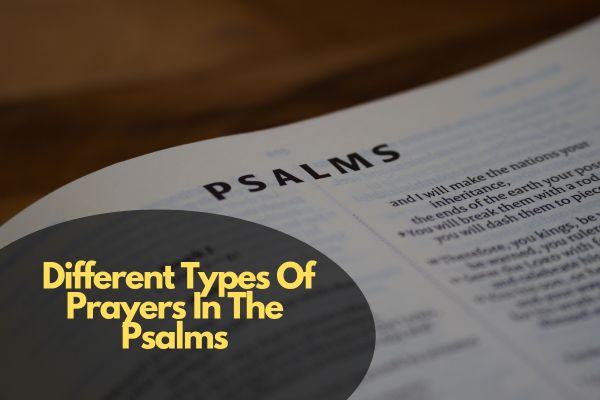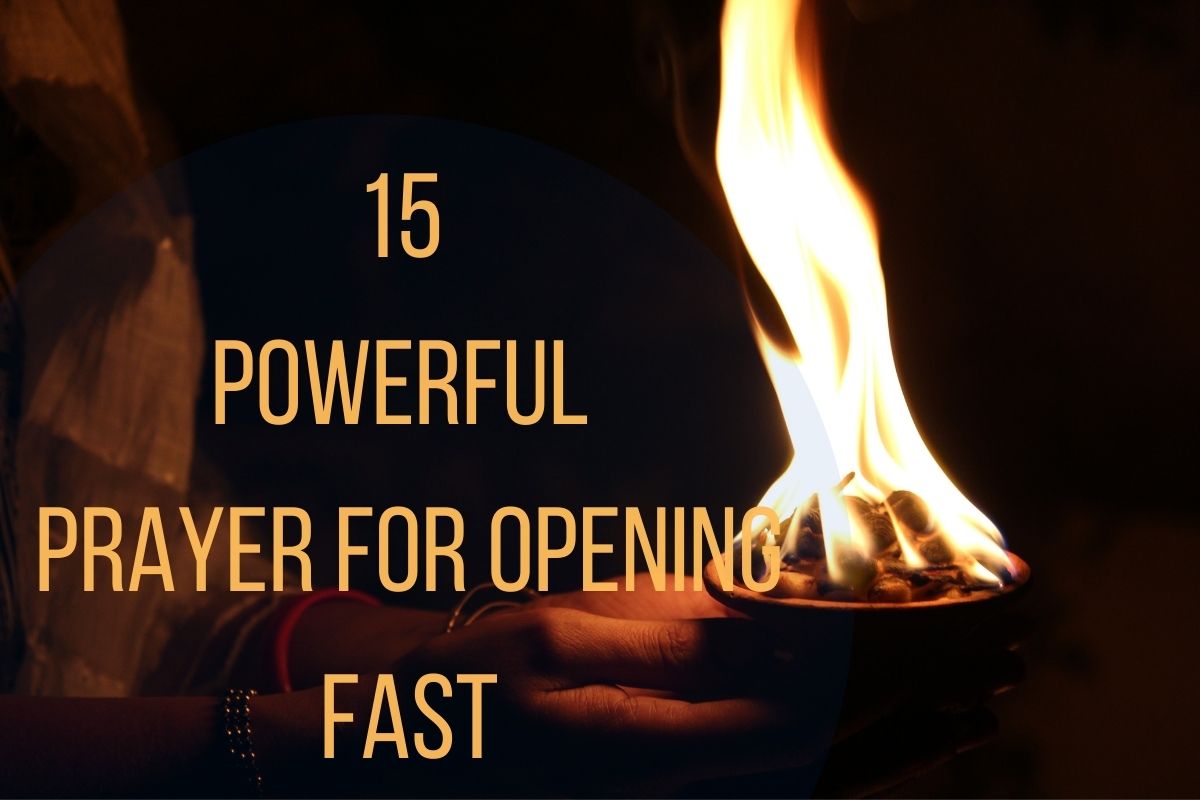When we want to connect with God on a personal level, the different types of prayers in the Psalms are some of the most treasured writings in the Bible.
The Psalms, which are filled with raw, honest petitions, serve as models for the various forms of prayers we might offer to the Lord. These ageless hymns, laments, and statements of faith add words to our spiritual interactions.
Different Types Of Prayers In The Psalms
The 150 Psalms overflow with prayers covering the spectrum of human emotion. God preserved this prayer-song book to equip us in prayer, align our hearts with His, and provide comfort that we’re not alone.
Psalms Give Language for Prayer
The psalmists wrote openly about their anguish, doubt, anger, repentance, joy, and questions for God, even in seasons of silence from heaven. The unfiltered Psalms teach us to uncensor our prayers as well.
Various prayer Categories are represented.
Psalms demonstrating blessing, repentance, lamenting, praising, singing, shouting, and questioning all appear. God wants us to freely explore conversational prayer with Him, just like in the Psalms.
Psalms of Blessing and Thanksgiving
Many Psalms exude gratitude and celebration of God’s goodness. Even when encountering trials, the psalmists regularly paused to thank God.
Blessing God
“Blessed be the Lord, who daily bears our burdens.” (Psalm 68:19). “I will bless the Lord at all times; His praise shall continually be in my mouth.” (Psalm 34:1). These “bless the Lord” prayers voice our awe of Him.
Thanking God for His Goodness
“Bless the Lord, oh my soul, and forget none of His benefits” (Psalm 103:2). Gratitude psalms recount God’s kindness, healing, redemption, and work in our lives so we don’t take His grace for granted.
Psalms of Lament and Distress
Many raw, emotive Psalms confess inner turmoil and desperation for God to show up amid adversity. Lament Psalms model crying out honestly before God when overwhelmed.
Crying Out in Anguish
“Listen to my words, Lord, consider my lament. Hear my cry for help, my King and my God, for to you I pray.” (Psalm 5:1-2). The psalmists freely vented their distress to God.
Asking “Why?”
“How long must I wrestle with my thoughts and, day after day, have sorrow in my heart?” (Psalm 13:2). God allows space for questioning and tears during confusing seasons of silence from heaven.
Pleading for God’s Deliverance
“In my distress, I called to the Lord; I cried to my God for help.” (Psalm 18:6). After expressing despair, most lament psalms ask God to intervene mightily.
Psalms of Confession and Repentance
Many Psalms demonstrate recognizing sin, asking forgiveness, and pleading for the inner renewal only God’s Spirit brings. Authenticity restores God’s joy.
Admitting Sin
“For I know my transgressions and my sin are always before me.” (Psalm 51:3). Admission prayers agree with God about the true state of our hearts, not making excuses.
Appealing to God’s Mercy
“Have mercy on me, O God, according to your unfailing love.” (Psalm 51:1). After confessing pride, selfishness, or hypocrisy, we ask God to forgive and show compassion according to His goodness.
Seeking Inner Renewal
“Create in me a pure heart, O God.” (Psalm 51:10). Confession prayers go beyond pardon for sin and crave deep heart surgery by the Spirit.
Psalms of Trust and Refuge
When chaotic storms or unexpected trials ambush us, we readily identify with Psalms declaring God as a strong tower of safety and faithful anchor for the soul.
Proclaiming God’s Faithfulness
“Great is your faithfulness, Lord.” (Psalm 143:8). Reciting God’s trustworthy character builds faith muscle to weather future uncertainty. We are anchored to His steadfast goodness.
Declaring the Lord as Shelter
“The Lord is my light and my salvation, so why should I be afraid” (Psalm 27:1). Trust psalms preach truth to our hearts when fear looms. God remains an ever-present help.
Choosing to Hope in God’s Strength
“Why am I discouraged? Put your hope in God, for I shall again praise Him.” (Psalm 43:5). We intentionally steer our heart’s gaze back to confidence in the Lord.
Psalms of Meditation and Insight
Several Psalms linger and ponder theological truths about God, human nature, and living wisely in light of eternity. They model using Scripture to gain perspective for life’s journey.
Pondering Spiritual Truths
“I meditate on all your work and consider what your hands have done.” (Psalm 143:5). We reflect deeply on God’s transcendent mysteries, cultivating awe.
Gaining Wisdom from Scripture
“Your statutes are wonderful; therefore, I obey them. The unfolding of your words gives light.” (Psalm 119:129). Internalizing God’s Word shepherds decisions and sustains perseverance through storms.
Psalms of Justice and Judgment
Many Psalms intercede for God to establish justice amid oppression. These showcase bringing injustice and corruption before God’s courtroom, trusting Him as the righteous judge.
Asking God to Act
“Arise, Lord! Lift your hand, O God. Do not forget the helpless.” (Psalm 10:12). God calls us to intercede to protect the vulnerable and oppressed.
Appealing to Divine Justice
“The righteous Lord loves justice.” (Psalm 11:7). Since injustice provokes God, we cry out for His intervention while clinging to hope.
Conclusion
The Psalms are unrivaled instances of honest, impassioned prayer language. As we read them, may we learn from the various talks exhibited by damaged humanity and a forgiving God.
From ecstasy to sadness, the Psalms depict the whole range of human emotions. What a blessing that God has preserved this lovely prayer journal for us in Scripture! Ultimately, the Psalms point to the Messiah, Jesus, the perfect priest who intercedes for us.
Frequently Asked Questions
Should I pray the exact words of the Psalms back to God?
Yes, the Psalms serve as powerful pre-written prayers we can echo back to God from a trusting, relational posture. We won’t repeat them ritually but thoughtfully personalize the words.
What if I am angry toward God – should I still pray the Psalms?
Absolutely. Many Psalms candidly vent anger and despair toward God. Let their model permit you to uncensor your prayers during confusing seasons.
How do I apply Psalms spiritually if my life seems fine on the surface?
Even without a major crisis, we all battle worry, apathy, spiritual dryness, temptation, busyness, and hardness of heart. The Psalms teach us to engage in prayer conversationally with God in our daily lives. Pray them preventatively before adversity strikes or indifference sets in.






